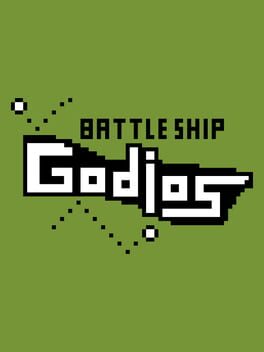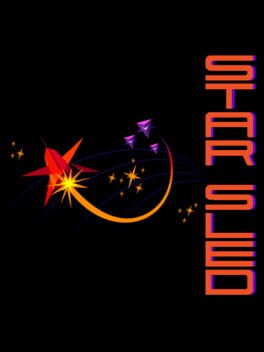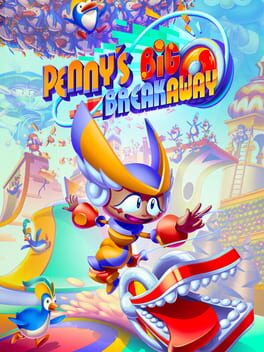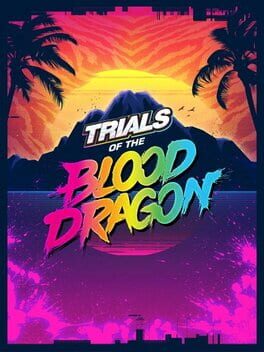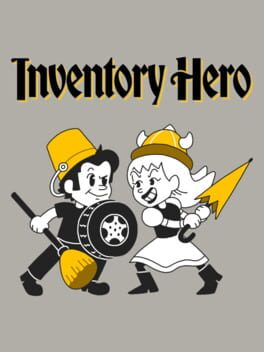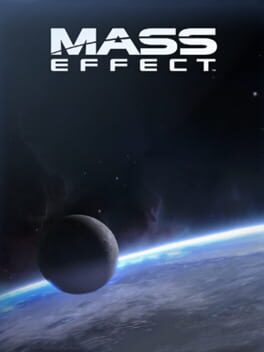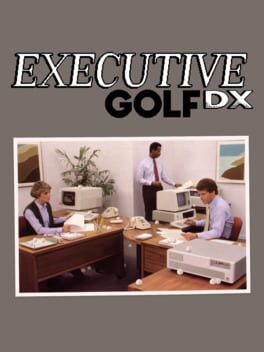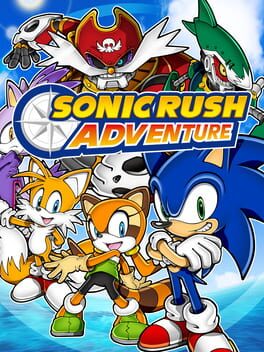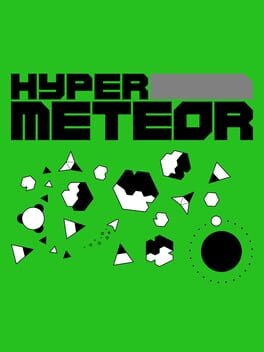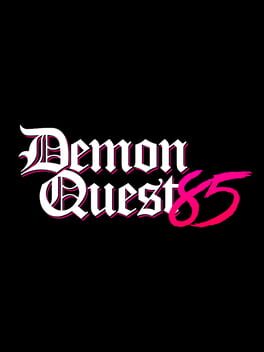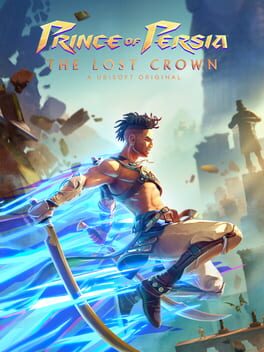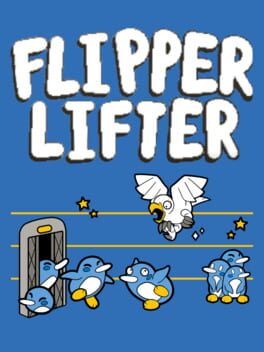aquova
BACKER
2022
This is another Playdate game that probably looked interesting on paper, but really doesn't work in practice. Battleship Godios is a horizontal Shmup, in the same vein as Gradius or R-Type. The game is broken up into short levels featuring only a handful of enemies, where you must expose and destroy their cores to finish the stage. The game's main gimmick is that you only have a finite number of bullets, which fire at 45 degrees and bounce around the stage. They're finite in the sense that you must recollect the bullets as they bounce around before they can be fired again, and if any escape beyond the edges of the screen, they're gone forever. You only start out with two or so, but can find optional upgrades to increase your number. However, if you fail to recapture all of your bullets, you can no longer fire and are effectively screwed. The game does have a rewind mechanic to prevent you from being completely softlocked, but you lose any progress you made when you roll back. As a shmup, the game requires a certain level of dexterity to avoid enemies, but neither the control scheme nor the Playdate's mediocre D-pad are really up to the challenge. As an indie platform, many of the Playdate's games do sometimes feel like quick demos, but none so much as this. Even the artwork, which is usually excellent even on the least noteworthy of Playdate games, is really amateurish here. I think this is probably the first title I've been really disappointed with from the first season, and easily my least favorite Playdate game thus far.
2022
I've enjoyed my time with the Playdate up until now, but while there are games I would say I enjoyed, there's always been the caveat that I enjoyed them as small indie games on a monochrome display. Saturday Edition is the first Playdate game that I would say is legitimately good, even if it weren't released on the Playdate. You play as John Kornfield, a man who claims to have been abducted by aliens, returned to Earth, resumed his normal life, and is increasingly involved in a series of mysterious disappearances in his city. It's a point-and-click style game, although there's not much actual pointing or clicking. You move between several points in the city, talking to NPCs and finding items which further the story. The UI is stylish and well done, with John only moving left or right, allowing the top of the screen to be used for notifying the player of an interactable. I really enjoyed the writing, you gain access to John's inner monologue as he begrudgingly deals with the situations he finds himself in, and both he and the overall story are charming and well written. I really sympathized with his character, and it's an approach to this type of story that isn't the most common. I think that statement applies to the entire plot. There are hints as to what is really happening sprinkled throughout, but the game still managed to subvert what I initially assumed was happening, while still remaining rewarding and organic. The game is admittedly a bit slow though, there's a lot of going back and forth between areas searching for what is new, and it might not seem like there's much happening in the middle chapters, but overall this is easily my favorite Playdate game to date.
2022
Star Sled is a Playdate space game where you control a spaceship and attempt to encircle all the targets while avoiding obstacles. I'm beginning to realize that the Playdate games I enjoy the most are the ones with discrete levels and an obtainable objective, rather than just arcade style. Star Sled is a good example of this, featuring 30 or so levels where your ship steadily gains new abilities as the game progresses. It has a very clear and well done art style, and is simple to pick up and understand. My one criticism is the controls. This game uses the crank to steer the ship, with two optional settings -- "absolute" mode where the ship always points in the same direction as the crank, or "relative" mode, where the ship turns as a multiple of how much the crank has been turned. Having this option is nice, but neither one really jelled well for me. Since the goal of the game is to constantly encircle things, the turning radius never felt as precise as I would like, but I think that's less a criticism of the game and more a criticism of using a crank as a control scheme. Still, even with somewhat loose controls I quite enjoyed this game and think it's one of the stronger Playdate titles to date.
Penny's Big Breakaway is the debut title from Evening Star, a new studio formed from several developers who worked on Sonic Mania. I was a big fan of Mania, and was excited to see what a talented team could do without the constraints of the Sonic franchise. The game is a 3D platformer where you control Penny and her magic yo-yo as you progress through as series of levels. The control scheme reminds me slightly of Super Mario Odyssey, where the character uses an object to gain extra platforming moves, in this case riding on a wheel, performing a swinging move, and dashing forward. I've seen some complaints about the control scheme, but I actually found it pretty fluid and easy to grasp, although there were some moments where some moves just didn't seem to want to fire correctly -- the dash move in particular. Sadly, while I enjoyed the controls I don't have much positivity for the rest of the game. It's not a bad game by any means, but I found it very bland. Pretty much every level is exactly the same, and they all blend together. They reuse the same level design ideas over and over again, and there's no single level that really stood out to me. The levels do have some optional tasks for you to complete, but I'm not sure why anyone would actually do them. They're just tedious enough to not be fun, and the only reward is some extra points. That's true of a lot of this game, completing extra objectives gives points, finding secrets gives points, landing on the best goal position gives more points. However the points don't actually do anything -- there's no extra lives to gain -- and if you die you're guaranteed to lose almost all you've gained that level. It was a lot of effort put into a system that has no real incentive for the player to engage in, so I ended up just playing all levels the same and racing to the end. The enemy design is also pretty weak, there are only hoards of penguins which attempt to grab onto you. If too many grab on, you die, but there's no way to actually defeat them. Your only option is to run away and try to engage with them as little as possible. The bosses as well are pretty uninteresting, most of them being trivial to beat, with the exception of one that just seemed very poorly designed and a bit buggy. Penny herself is... fine. I didn't engage with the plot at all, and they made the odd decision that while all the characters just speak in speech bubbles (which is a good choice), Penny herself is a silent protagonist. It's really weird that everyone else has dialogue while Penny just... stands there. As I said, I didn't dislike this game, but I also didn't really have any positive experiences with it. I hope it does well enough for Evening Star to continue forward, as the talent is clearly there, but I don't think I would be interested in a Penny sequel.
Trials of the Blood Dragon is a crossover between a Far Cry 3 DLC and the Trials series, neither of which I've played, and after this neither of which I will. The game tries to embrace every 1980s film stereotype including overly macho characters, film homages, massive explosions, aliens, giant monsters, Communists threats, a Miami Vice colorscheme, you name it. This was a bit of a fad when this game came out, but they do it here with little subtlety, it's just thrown in your face in a vague attempt to be funny. Combine this with some awful voice acting and contrived storylines, and it makes the cutscene plot, which is a significant amount of the runtime, a complete waste of time. This is a motorcycle game however, we're not here for the plot, and unfortunately that's just as bad. Firstly, there's more than just motorcycle levels, as they also introduce mechanics like dual-stick shooting and a grappling hook, which are incredibly frustrating to use, not to mention straight platforming levels. Perhaps a third of the levels are just platforming with no vehicle riding, and the physics are very wonky. My issues with the physics extend to the actual vehicle levels as well though. You'll ride a bike or motorcycle depending on the level, and they are awful to control. You have very little fine control over controlling them, once they gain angular momentum, it's a waste of time to try and straighten out again, and they have so much torque -- particularly the bike -- that you'll often just flip over trying to climb hills. This is probably a more fun game to watch than to play, and I'll admit the music is pretty good, but everything about it is just grating and frustrating. Finally, I know they're doing a 1980s parody, but singling out the Vietnamese as the villains of the game, complete with ahem stereotypical dialogue, is just abhorrent.
2022
Another game among the upper echelon of Playdate titles, Inventory Hero is a fun and fast paced game where you simply maintain the inventory of a hero on his quest. You can watch said hero fight waves of enemies on the top of the screen, but your job is to either use or discard the items that are automatically gathered. You have six possibly inventory slots, which can be filled with armor and weapons to equip, food and potions to drink, or just straight junk that must be discarded. It's a really cute game and I really enjoy the premise and the gameplay. It doesn't have a huge amount of replayability, especially since you'll hit the end of any additional content pretty quickly in a run, but I still think it's more replayable than the majority of Playdate titles. The artwork is really well done and the music isn't half bad either. Definitely one of my favorite Playdate games thus far.
2021
I originally beat the first Mass Effect game about a decade ago, and to be honest I don't think I really appreciated it then. My poor laptop wasn't well suited to running the game, and my inexperience with shooters made for a cumbersome experience. Returning to it now, via the Legendary Edition remasters, my greatest impression is how good the world building is. You play as Cmd. Shepard, the first human soldier to join an elite arm of the galactic special services. You find yourself embroiled in a plot to continue a cyclical pattern of galactic genocide taking place over the course of millennia, and you have to make allies of various unique and interesting species to stop the threat. It's a game where your choices really do matter, both in how other characters treat you, but even towards who lives and dies and how the ending plays out. These choices can directly carry over to the sequel titles, giving a level of storytelling that even now hasn't really been surpassed. I really enjoyed the look of the future presented in this game, not just with the technology and alien races, but even things like how human fashion will evolve. It's a well thought out and cohesive vision. There are a variety of different combat methods, but those are somewhat locked depending on what class you choose at the beginning of the game, which is a bit of a shame. I ended up going pure third person shooter, which is rather enjoyable, if not terribly original. Any complaint I have towards this game is pretty minor. It's surprisingly shorter than I recall for one. I did nearly all the side quests available to me, but I think there's only five or six stages in the main campaign. The side quests have interest premises, but all take place in one of two copy pasted enemy bases, which can feel a bit silly. Overall, a thoroughly enjoyable replay, and I'm looking forward to continuing on to the rest of the series, which I never got around to finishing back in the day.
2022
The weekly Playdate releases are an interesting bunch of games. Many of them are trying some really unique twists on typical ideas, but while some of those ideas work really well, others... not so much. Executive Golf DX is one of the ones that unfortunately fall into the latter category. It's a golf game, but instead of hitting a ball across a field, you are trying to ascend or descend an office building, complete with desks, chairs, bookshevles, etc. as obstacles. This sounds like a great idea on paper, but the combination of fighting gravity along with trying to navigate through gaps in furniture makes this a tedious affair. It doesn't help that this game has no tutorial of any sort. It took me quite a long time to figure out how the power gauge worked, and I still don't think it's a good system. The entire game is very short, only eight levels taking me about 30 minutes, but I don't think I beat any level in less than several dozen hits. Even trying to align the ball with the elevator at the end of the stage often took several tries, due to the lack of precision you have. While it's not my least favorite Playdate game, I do think it's well made with good graphics and some good ideas, the core concept just isn't a strong one.
2007
When I was a teenager, I was obsessed with Sonic. Any game I could get my hands on I played over and over again - Sonic 2, Sonic 3 & Knuckles, even Shadow the Hedgehog. Another game I had around that time was the first Sonic Rush, and I think the fact I barely remember playing it says a lot about my opinions of it. Decades later though, I've decided to try out its sequel, Sonic Rush Adventure. This game, for lack of a better word, is mid. Everything about it is just mediocre. The earlier levels do allow you to maintain your sense of speed, but at the cost of having some very bland level design. The later levels overcompensate for this, and are a classic example of awful Dimps design. Bullshit death bits, finicky platforming sections, all while not being really interesting at all. The best part of this game might be the short sailing minigames, as there is a world map for you to explore (although there's not much there for you to find). The game does require a little bit of grind to progress at a few places, but I never had to replay anything other than the first two levels, so I might have gotten lucky. The plot as well is pretty worthless. Blaze returns, but doesn't have her own campaign, unlike the original Sonic Rush, and newcomer Marine is kinda fun, but constantly disrespected by the rest of the party. All-in-all, I can finally say that I've played through this game, but I think I was right in not picking it up back when it was new.
2022
Finally someone has answered the age old question -- what if I could play Asteroids with a crank? Enter Hyper Meteor, an arcade-esque game where you steer a ship around a small arena, attempting to destroy obstacles by ramming into their vulnerable sections. It's a quick and simple game, with the only goal being to get the highest score. It reminds me a bit of Whitewater Wipeout in that way, although I think this genre personally appeals more to me. The controls feel good, it's fun to get into, but the nature of the game prevents it from really being any higher on my list. It apparently has Switch and PC ports, but I can't imagine those would be too entertaining without the novelty (and free giveaway) of the Playdate version.
2022
Demon Quest '85 is a Playdate visual novel where you gather a group of your schoolmates and together summon demons to try to solve your problems. It's a short but sweet affair, where most of the gameplay entails trying to match which people, music, and items the given demon is likely to appear before, and then asking them a series of questions. These questions both reveal how to summon the subsequent demons, as well as play into an overarching story about a beyond-the-scenes war for Hell itself. The artwork is the game's strongest aspect, although I did also quite enjoy the writing. Your character can be fairly flippant about the situation they find themselves in, which I found charming. It can be a bit frustrating trying to figure out what element you got wrong when trying to summon, especially since that's basically the only gameplay, but there's enough hints to allow you to figure it out in the end.
This game was one of my most anticipated of the year, and I ended up with a lot of mixed feelings about it. On paper, every aspect of this game is really well done. I think that Final Fantasy VII has one of the best stories and characters in the series, and this game really utilizes them well, something some of the other previous spin-offs struggled with. The combat is similar to the previous Remake entry, which I enjoyed when it was released. The graphics, some initial blurry issues aside, are top notch. All that being said, there are some games that I think are better than the sum of their parts, but my big takeaway from this title is that I found it weaker than the sum of its parts. A lot of this is due to the pacing of the game. The first half of the game has a lot of minigames, many of them adapted from the original FF7. This isn't a bad thing on their own, but I honestly think in the first 10 hours of the game, you'll be playing more mandatory minigames than core gameplay. It really highlights the fact that this isn't a complete story, but the middle section of Final Fantasy VII, expanded so that it has its own beginning, middle, and end. This expansion goes better than one would expect, but does lead to some unique issues. The game sets up some mysteries, and it's a little frustrating to know they won't be resolved until a third game years in the future (and even worse for some things established in Remake). I think the second half of the game is a lot tighter focused, as it leaves the distractions and campiness behind. The new aspects to Rebirth, as opposed to Remake, are the large open world areas, and some changes to the gameplay. The open world is.. fine. It feels like a bog standard modern open world, complete with towers to visit to reveal new points of interest. They're easy enough to avoid if you don't find them interesting, and I found them mainly to be a checklist to complete. I do want to highlight the changes they're making to the story across this new trilogy. There are some players who seem opposed to the idea of any changes at all. I personally view that remaking a game gives the chance to tweak not just the visuals and gameplay, but potentially the story as well. The impression I got from Remake was that this was potentially a secret sequel to Final Fantasy VII, and that could be an interesting change. With two thirds of the new story behind us, I'm afraid to say I'm not crazy about the approach they're taking. I don't want to reveal too much, but despite Zack Fair being on the cover, he served very little purpose. His inclusion I could overlook (so long as they don't add any of the awful Crisis Core villains), but I think the changes they made to the ending segments are pretty awful. Not only does it take away from the impact of Sephiroth as the overall villain -- the same mistake they made in Remake, in my opinion -- but it also somewhat muddies what is this game's most famous legacy. There is a vision here, and a desire to keep audiences in suspense, but in the end I was just left with confusion. This review might sound a bit negative, but I do want to express that I did enjoy myself. It's rare these days that I find myself playing through a game for hours on end, but often when I went to save I would be surprised that an hour had gone by. It's because I had such high hopes for this game -- and the high reviews from others -- that I found it a bit lackluster. If I'm being honest, I didn't like it as much as Remake, I didn't like it as much as the original FF7, and what I'm sure is going to be somewhat controversial, I didn't like it as much as Final Fantasy XVI.
Unlike most of the modern Prince of Persia games, which are 3D affairs, The Lost Crown is a metroidvania. It confusingly doesn't star the Prince of Persia, but one of his elite soldiers, Sargon, as he faces a conspiracy within his own ranks to rescue the Prince. Despite not starring the Prince, a character associated with time powers, Sargon too gains reality bending abilities as he travels throughout a mysterious mountain temple. The highlight of this game is its movement system. Sargon is incredibly nimble to control, and actions such as wall jumping or combo attacks are fun to learn but nuanced to master. As far as metroidvanias go, it probably has some of the best controls of any I've played. The game does a good job balancing combat encounters with environmental platform challenges, and I never felt the game was being unfair, but it also actually expected you to utilize your movement to its fullest potential. Any negatives I have towards the game are honestly minor nitpicks. The environments, while varied, aren't necessarily all that interesting, although there are some standout examples. I also never really got the hang of using the parry system, but I think that's becoming a trend with me in multiple games. This game goes a lot harder than it needed to, but I think it resulted in one of the best games this year.
2022
Omaze is a Playdate maze game heavily centered around circles. You are a circle and by turning the crank you move around the perimeter of larger circles, in an attempt to navigate across to the final circle. Each circle along your path features one or more clever obstacles, such as auto-rotation, enemies that chase you, or walls that disappear when the crank is docked, among others. It's a short but really clever puzzle game. I will admit that it can be a bit finicky to control, as some of the levels require using the crank and hitting the A and B buttons in quick succession, which makes getting a comfortable grip on the device difficult. Regardless, I thoroughly enjoyed this game and I think it's the best Playdate game I've tried so far by a wide margin.
2022
Another short and sweet Playdate game utilizing only the crank, Flipper Lifter puts you in control of an elevator system utilized by a colony of penguins. The elevator moves up or down by turning the crank, and you need to get the penguins to their desired floor before they get frustrated and storm off. There's no progression to this game, it's an arcade-style system where you try to move as many penguins as possible before time elapses. The difficulty comes as the number of possible floors increases over time. It's a pretty elegant system, and reminds me a lot of Mini Metro. It does lack the strategy of these sorts of games though, as there's not much else to it besides trying to group like-minded penguins together. However, it's a fun time and has good visuals and music, along with some clever touches, such as elevators being harder to move upwards the more full they are. Of the Playdate Season 1 games, this is probably my favorite thus far.
